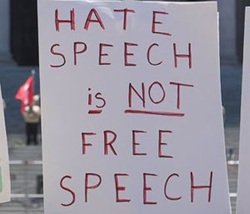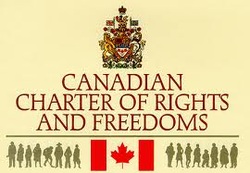
The result is that a Quebec common law partner who broke up with her spouse cannot succeed in her claim to have the same laws applied to her as are applied to married or civil union partners when they break up.In Quebec v A, A had argued that her equality rights under the Charter of Rights were infringed, because when she broke up she could not claim a division of property or spousal support as people who were married or in a common law relationship could do. To succeed, she had to show that common law partners suffered disadvantage and that the exclusion from the law contributed to the continuing stereotype or disadvantage. The Supreme Court of Canada said that although there was a period of Quebec history during which de facto (in fact, rather than married) spouses were subjected to both legislative hostility and social ostracism, nothing in the evidence suggests that de facto spouses are now subject to public opprobrium.
This has been one of my more confused/confusing posts. Here's the thing: (1) yes, in B.C. common law and married partners, (including same sex) have EXACTLY the same rights and responsibilities - as they should - but in PQ the situation is different. They enacted a 'domestic partnership' regime which lets people essentially sign up for common law status (I call it 'marriage light' ). This case was brought by people who were neither married nor in a domestic partnership. Personally, I think the SCC got it wrong, because I don't think prejudice against people who are "not really married" is over by a long shot. And I think people kind of 'slide into' living common law: they get together, decide to live together...then maybe have children...then... find the relationship ending with no rights attached. The flip side though is that such a relationship ends with no responsibilities attached. For every ending, one partner wishes they did, and one is glad they don't, have a regime like a marriage regime governing the financial aspects of their breakup. NOTE: in BC you 'become' common law after you have lived together for 2 years. In Ontario, it takes 3 years; federally, it takes 1 year.


 RSS Feed
RSS Feed
